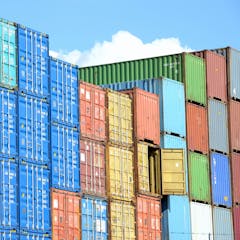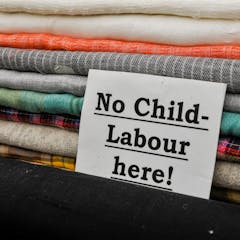
Articles sur Supply chains
Affichage de 41 à 60 de 257 articles

So much international trade happens in dollars that it would be very difficult to turn the tide against the currency any time soon.

When the roads flooded around Lismore, it left supermarket shelves empty for months. Keeping everyone fed took a huge community effort. Now we need to make food supply secure.

There are many uses for digital systems that are not centrally controlled and that allow large numbers of people to participate securely, even if they don’t all know and trust each other.

We need a comprehensive code of conduct that ensures the long-term sustainability of the industry, while also protecting consumers in the event of future supply imbalances.

Change and communication across the food supply chain will help stop prices from rising further.

If we have learned anything from the fight against modern slavery, it is that addressing the issue takes extensive time, resources and long-term commitments.

When you buy seafood, you can’t be sure it is what it says it is – and Australian wholesalers are resistant to new traceability technologies.

While it may be challenging for organizations to manage all the activities within their global supply chains, there are best practices they can adopt to prevent modern slavery.

AI and 3D printing could transform the way we make things, but many companies have been slow to take advantage.

Food shortages have revealed weaknesses in UK supply chains.

The negative effects of conflict on human capital – particularly nutrition, health and education – are larger than commonly thought.

Stocking up responsibly could mean you are prepared for emergencies, save money – and help keep supply chains running.

As with so many staples and foods in the past two years – lettuce, milk and eggs to name a few – the problem is a temporary imbalance between supply and demand. Here’s what’s happening with potatoes.

Research shows that food supply chains are unfair, but there are ways to make them more sustainable for all involved.

The incentives to bring manufacturing back to the US will affect productivity, but in ways that might be surprising.

Rapid increases in food prices due to inflation mean many Canadians may be making different food choices. Here are the possible short- and long-term effects of that, and some ways to save money.

Companies around the world are rapidly reshoring factories, investing in new technologies and building their inventories – shifts that all mean higher costs for consumers.

US workers are not skilled enough to meet the next generation of manufacturing. But some efforts are underway to train them.

What’s a polycrisis? We’re in one, and greed and power are undoubtedly worsening it, but our knowledge remains poor. Experts know a lot about individual risks and crises, but not how they interact.

President Joe Biden called on Congress to intervene to avoid a strike that he said would ‘devastate our economy.’
